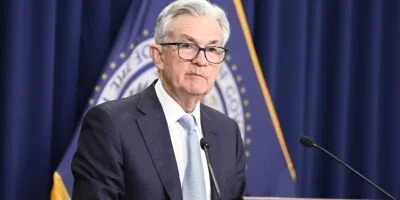The IMF is Wrong – and Right – About Crypto

A recent report from the International Monetary Fund (IMF) and the Financial Stability Board (FSB) discusses the potential economic and financial risks posed by cryptocurrencies. The report provides “comprehensive guidance to help authorities address the macroeconomic and financial stability risks posed by crypto-asset activities and markets.”
It should come as no surprise what the inter-governmental organizations advising major governments would recommend as a solution: more government.
The “Risks” of Crypto
Though noting that governments should evaluate “the costs and benefits associated with crypto-assets,” the report itself is focused mostly on the costs. It outlines a number of risks that crypto might pose to monetary policy, financial stability, capital controls, and more. I am skeptical, however, regarding some of the supposed risks outlined in the report, as well as its proposed solutions.
Monetary policy: One of the report’s main concerns is that crypto usage will interfere with domestic monetary policy, especially where such policy is unreliable already. “The risk of currency substitution,” the report describes, “is particularly pertinent for countries with unstable currencies and weak monetary frameworks.”
It is true that crypto is more likely to be adopted in countries with poor monetary policy, but this is mostly a problem for governments. From the citizen’s perspective, crypto is a tool that can lessen the negative effects of a government’s harmful policies.
Financial stability:
The IMF and FSB worry about financial instability that might be created by the integration of crypto with the traditional financial system. The report notes that “crypto-asset market turmoil” in May 2022 spilled over into traditional financial markets.
As some have noted, however, the major failures in 2022, including FTX and Three Arrows Capital, were not decentralized crypto protocols, but rather traditional financial institutions operating in the crypto space. Preventing such failures would be better accomplished by clarifying existing regulations rather than creating additional regulations for the crypto industry.
The use of stablecoins pegged to the value of the US dollar is another stability concern. It is possible that the value of a particular stablecoin might collapse if the issuer fails to maintain sufficient dollar reserves. This risk, however, is already being monitored by jurisdictions like the United States, the European Union, and others. It is unclear what benefit additional regulations would add.
Capital flows:
The report cites the use of cryptocurrencies to evade capital restrictions and notes that such evasion is “robustly higher in countries with tighter capital controls.” Such capital controls may benefit the government, but they are harmful to citizens who seek only a stable asset in which to store their hard-earned wealth.
The report cites a laundry list of potential dangers, but the main worry seems to be that crypto will enable citizens to evade their governments’ oppressive policies.
Policy Recommendations
To alleviate the supposed risks, the IMF and FSB recommend extensive systems for government monitoring, restricting, and managing cryptocurrency usage. The report also proposes an international framework for “regulation, supervision, and oversight of global stablecoin arrangements” as well as other frameworks for international regulation and governance of cryptocurrencies.
Naturally, the IMF and FSB recommend themselves as stewards of this process. Their policy roadmap proposes a number of ongoing actions and initiatives, virtually all of which would be organized by the IMF, the FSB, or both. They even call for a “global financial safety net,” which, of course, the IMF would manage.
No Bans on Crypto
Despite recommending regulation, the report discourages attempts to ban crypto entirely, as such efforts can be costly and have potentially harmful unintended consequences.
“Blanket bans that make all crypto-asset activities (e.g., trading and mining) illegal can be costly and technically demanding to enforce,” the report describes. “They also tend to increase the incentives for circumvention due to the inherent borderless nature of crypto- assets, resulting in potentially heightened financial integrity risks, and can also create inefficiencies.”
I am glad to see the IMF acknowledging the difficulty and costliness of attempting to ban crypto. Almost a decade ago, my coauthors and I reached similar conclusions in our paper “The Political Economy of Bitcoin.” We argued that in many countries, enforcing outright bans of bitcoin and cryptocurrencies would be difficult or impossible. It is good that the IMF has come around to this position.
The IMF and FSB’s recommendations are transparently pro-government and anti-citizen. They overstate the potential harm of cryptocurrencies and propose monitoring systems that would benefit tyrannical governments at the expense of the public.
While the risks in the report are overstated and the solutions overbearing, at least the report gets one thing right: banning crypto would be a huge mistake.










